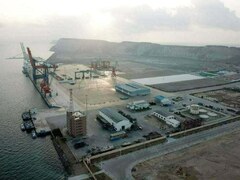KARACHI: Cotton production has surged by 71%, reaching a total of 8.4 million bales; however, ginners have left with only 60,000 bales in stock as the crop season concludes. Despite stability in the rate of cotton, local business remains sluggish; however, a bearish trend in international cotton market is witnessed.
However, the crisis continues to hit the textile sector. Its severe financial crunch is compounded by the absence of a cotton production target from the Federal Committee on Agriculture for the new season. Delay in the announcement of intervention price is another troubling matter.
Throughout the past week, the local cotton market sustained stability in its prices despite experiencing diminished business activity attributed to the observance of Ramadan. The trading volume was very low. Presently, ginners hold an inventory of approximately 60,000 bales of cotton, while an international committee possesses a stock of around 75,000 bales. This committee is selling this stock of and on.
After increasing the rate of petrol, the government has decided to increase the price of electricity. Even though it has already been difficult to run industries due to the high cost of energy, this further increase in power rates will make the cost of production even more expensive.
The government is not listening to the appeals of the industrialists at all due to which the inflation in the country has reached its peak. Unemployment continues to rise as industries are not fully functioning due to which the situation in the country is going to be deteriorated; the government should look into this matter, seriously.
The issue of water availability for the Kharif crop is surfacing for the next season as currently according to reports the availability of water is 35% less.
The month of April has already begun, yet the FCA has not announced the cotton production target, and the government is also delaying the intervention price of cotton. In the provinces of Sindh and Punjab, the price of cotton ranges from Rs 20,000 to Rs 22,000 per maund, while the price of Phutti, which is available in small quantity, is in between Rs 9,500 to Rs 10,500 per 40 kg. Banola, Khal, and oil prices remain stable.
The Spot Rate Committee of the Karachi Cotton Association kept the rate of cotton unchanged at Rs 21,500 per maund.
Naseem Usman, chairman of Karachi Cotton Brokers Forum, said that there was a downward trend in international cotton prices. New York cotton saw a significant decline, with the rate of Future Trading falling to a low of 86.25 US cents. There is a downward trend in cotton prices in India.
According to the USDA’s weekly export and sales report, sales for the year 2023-24 were 84,900 bales.
In the latest cotton market report, China emerged as the leading purchaser, acquiring 35,300 bales, followed by Turkey that secured the second position with a purchase of 19,400 bales. Honduras clinched third place, procuring 11,100 bales.
Overall, a total of 22,900 bales were sold for the fiscal year 2024-25.
Further analysis revealed Honduras as the primary buyer, acquiring a significant 16,900 bales. Bangladesh secured the second spot, with a purchase totalling 5,800 bales. Peru followed suit, acquiring 200 bales, securing the third position in the market.
Seed cotton (Phutti) equivalent to over 8.3 million or exactly 839,655,7 bales has reached ginning factories across the country till March 31, 2024.
According to a fortnightly report of the Pakistan Cotton Ginners Association (PCGA) released on Wednesday over 8.3 million or 839,655,7 bales have undergone the ginning process. It is 348,4488 more bales compared to the corresponding period of the year 2023. The total increase in about 70.94 percent, the report added.
Cotton arrival in Punjab was recorded at over 4.2 million or 428,177,9 bales.
It is 1.2 million or 124,872,9 more if compared to last year in Punjab, thus registering an increase of 41.17 percent.
Sindh generated over four million or 411,477,8 bales, and recorded an increase of 118.99 percent when compared to last year.
Similarly, 18 ginning factories are in operation in the country. The textile sector bought 804,335,6 bales while exporters purchased 2,92,726 bales and the Trading Corporation of Pakistan (TCP) didn’t buy during the cotton season 2023-24. In Punjab, 17 factories are operational, said reports.
Naseem Usman said that the total cotton production in the country stands at approximately one Crore bales. As per the Pakistan Cotton Ginners Association (PCGA) report, 84 Lakh bales have been produced, with an estimated additional 16 Lakh bales yet to be registered, according to market sources.
Besides, last year’s import contracts of 10 Lakh bales of about 155 kg of cotton are outstanding, while in the current season, import contracts of about 4 Lakh bales of cotton have been made, while about 9 Lakh bales of cotton have been imported from Afghanistan.
Similarly, there will be about 21 Lakh bales of imported bales, while according to textile spinners, the consumption of cotton in the country is expected about 1 Crore 30 Lakh bales.
Senior member of the Pakistan Cotton Ginners Association (PCGA) and the MPA, Rana Muhammad Saleem Hanif has stated during a meeting with the Chairman of the Pakistan Business Forum (South Punjab) that increasing the production of cotton in Punjab is the priority of the government.
He mentioned that discussions regarding the enhancement of cotton production took place during his recent meetings with Punjab Chief Minister Maryam Nawaz Sharif and Agriculture Minister Syed Ashiq Hussain Kirmani.
Commenting on the establishment of the economic think tank by the Federation of Pakistan Chambers of Commerce and Industry (FPCCI) under Dr Gohar Ijaz’s chairmanship to promote economic activities and formulate solid economic policies, Sajid Mahmood, Head of the Transfer of Technology Department at the Central Cotton Institute, Multan, expressed that this marks a promising beginning for economic stability and policy continuity. With the participation of top economic minds, governance experts, industrialists, investors, and exporters, the country is poised to move in the right economic direction.
He further emphasised the potential of the think tank to strengthen the Pakistan Central Cotton Committee (PCCC), the country’s largest research institute, which has struggled due to financial constraints. The think tank’s active involvement is anticipated to contribute to the promotion and development of cotton and its revival.
Copyright Business Recorder, 2024






















Comments
Comments are closed.